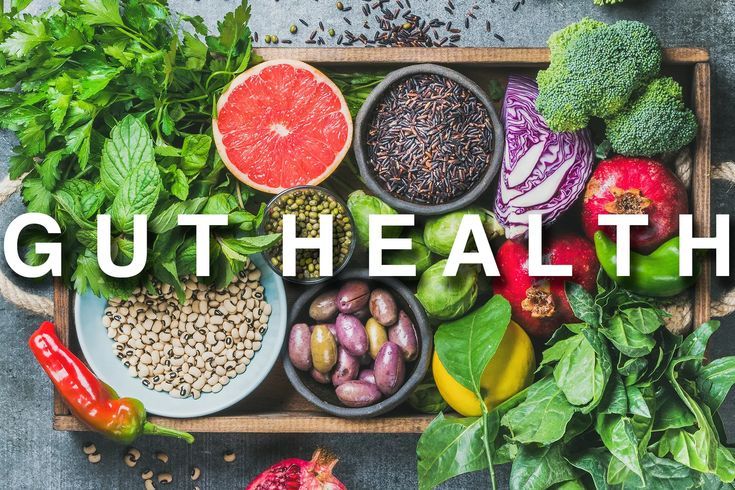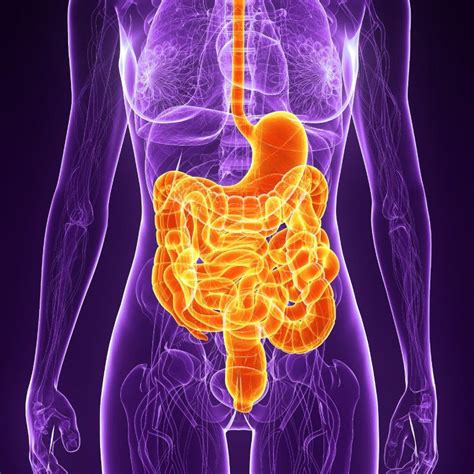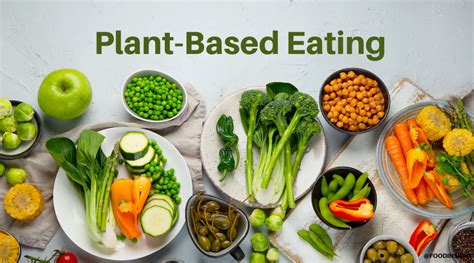
In today’s digital era, social media platforms have become a go-to source for lifestyle advice, health tips, and wellness trends. TikTok, with its short-form videos and viral challenges, has notably positioned itself as a hub for health and fitness hacks, including tips for achieving optimal gut health. However, behind the engaging clips and catchy hashtags lies a growing concern: the spread of misleading information that often lacks scientific backing. This article aims to debunk the most common TikTok gut health myths, explore the scientific basis of digestive wellness, and offer evidence-based strategies for nurturing a healthy gut.
Gut health is far more than simply having regular bowel movements. It encompasses the balance and function of the gastrointestinal system, including the intricate ecosystem of microbes residing in the digestive tract. Recent scientific discoveries have shown that the gut microbiome—a complex community of bacteria, viruses, fungi, and other microorganisms—plays a crucial role in digestion, nutrient absorption, immune system function, and even mental health.
A healthy gut involves:
- Diverse Microbiota: A varied microbial community can protect against pathogens, aid in the digestion of complex carbohydrates, and support immune function.
- Intact Gut Lining: The intestinal barrier prevents harmful substances from entering the bloodstream while allowing nutrients to pass through.
- Balanced pH Levels: Maintaining the right acidity in the digestive tract is essential for optimal enzyme activity and nutrient absorption.
Scientific studies continue to unravel the relationship between the gut and overall health, emphasizing that maintaining gut balance is fundamental for long-term well-being. While diet, lifestyle, and even stress management contribute to gut health, oversimplified claims—especially those proliferating on platforms like TikTok—can mislead individuals into adopting practices that may not be beneficial or, in some cases, might even be harmful.
The TikTok Influence on Health Trends
TikTok’s rise as a powerhouse in digital media has reshaped how information is consumed. The platform’s algorithm promotes content based on engagement rather than accuracy, making it possible for catchy, visually appealing videos to spread misinformation rapidly. Health trends, including those related to gut health, often rely on personal anecdotes and quick-fix solutions that may ignore individual differences and scientific complexity.
How TikTok Shapes Health Advice
TikTok’s format favors short, engaging snippets that are easily digestible—pun intended. This brevity, however, means that nuanced explanations are often sacrificed for simplicity. Some key aspects of TikTok’s influence include:
A. Viral Challenges and Trends: Many users jump on the bandwagon of trending health challenges without considering the scientific validity behind the claims.
B. Influencer Endorsements: Non-expert influencers often share their personal experiences or unverified tips, which can be mistaken for professional advice.
C. Algorithmic Amplification: Content that garners high engagement, regardless of its factual accuracy, is pushed to a wider audience, further propagating myths and unproven health practices.
While TikTok has democratized the sharing of ideas, it has also inadvertently opened the door to a flood of misleading information. This dynamic underscores the importance of critically evaluating health advice and consulting trusted sources when it comes to matters as delicate as gut health.
Common TikTok Gut Health Myths
TikTok users have popularized numerous claims about gut health that do not always hold up to scientific scrutiny. Below are several of the most widespread myths, along with a brief explanation of why these claims can be misleading.
A. Miracle Detox Diets:
Many videos promote detox diets or “cleanse” regimens that claim to eliminate toxins from the gut. In reality, the human body is naturally equipped with sophisticated detoxification systems—primarily the liver and kidneys. Extreme detox diets can sometimes lead to nutrient deficiencies and may disrupt the natural balance of the gut microbiome.
B. Universal Probiotic Supplements:
The idea that taking any probiotic supplement will magically improve gut health is another pervasive myth. Not all probiotics are created equal, and their effects can vary widely depending on the strains used, the dosage, and individual differences. What works for one person might not work for another, and in some cases, unnecessary supplementation can cause gastrointestinal discomfort.
C. Fad Diets with Extreme Restrictions:
TikTok is replete with claims that eliminating entire food groups—such as carbohydrates, fats, or even specific fruits and vegetables—will lead to improved gut function. While dietary changes can indeed influence the gut microbiome, overly restrictive diets can lead to an unbalanced intake of essential nutrients, potentially harming overall health.
D. Over-Simplified Gut “Reboot” Programs:
Some influencers advocate for short-term “gut reboot” programs that promise rapid changes in gut health. These programs often lack personalized nutritional advice and may disregard the complexity of gut ecology. Sustainable gut health improvements typically require long-term lifestyle changes rather than quick fixes.
E. Magical Fermented Superfoods:
Fermented foods like kombucha, kimchi, and sauerkraut are celebrated on TikTok for their purported gut-healing properties. While these foods can be beneficial, the evidence supporting their effects is not as definitive as some trends suggest. They can be a part of a healthy diet, but they are not a cure-all for digestive issues.
F. Detox Teas and Supplements:
A variety of detox teas and supplements are touted as natural remedies for gut imbalance and weight loss. However, many of these products are not regulated by health authorities and may contain ingredients with unproven benefits or even harmful side effects. Relying solely on these products without professional guidance can be risky.
G. “Gut Health Fixes” via Extreme Fasting:
Intermittent fasting has gained popularity as a means to improve gut health and metabolism. However, extreme fasting regimens—often promoted without sufficient context—can lead to electrolyte imbalances, decreased energy levels, and other adverse health effects if not managed carefully.
H. Claiming One-Size-Fits-All Solutions:
Perhaps the most damaging myth is the belief that there is a universal solution for all gut-related issues. The truth is, gut health is highly individual. Factors such as genetics, pre-existing conditions, lifestyle, and even environmental influences mean that what works for one person may not work for another. Personalized care is essential when addressing digestive health.
These myths underscore the importance of seeking reliable, science-based information rather than following the latest viral trend. By understanding the nuances behind gut health, individuals can make more informed decisions that truly support their long-term wellness.
The Science Behind Gut Health
To effectively debunk common myths, it is crucial to understand the scientific foundations of gut health. Recent decades have seen significant advancements in microbiome research, revealing that the gut plays a pivotal role in many bodily functions beyond digestion.
The Role of the Microbiome
The gut microbiome consists of trillions of microorganisms that coexist in a delicate balance. Research has shown that these microbes are involved in:
A. Digestion and Nutrient Absorption:
They help break down complex carbohydrates, fibers, and proteins that the human body cannot digest on its own. This process releases essential nutrients and energy.
B. Immune Function:
A healthy microbiome supports the immune system by preventing the colonization of harmful pathogens and modulating inflammatory responses.
C. Mental Health:
There is growing evidence of a gut-brain axis, a bidirectional communication pathway between the gut and the brain. This connection can influence mood, stress levels, and cognitive function.
D. Metabolism and Weight Management:
Certain gut bacteria have been linked to metabolic functions and may influence how efficiently calories are burned and stored, impacting weight regulation.
Factors Influencing Gut Health
Several factors contribute to the overall health of the gut, including:
A. Diet:
A balanced diet rich in fiber, fruits, vegetables, lean proteins, and healthy fats can support a diverse microbiome. Diets high in processed foods, sugars, and unhealthy fats can disrupt this balance.
B. Lifestyle:
Regular exercise, sufficient sleep, and stress management are all critical for maintaining gut health. Chronic stress, in particular, can negatively affect gut motility and microbial balance.
C. Antibiotic Use:
While antibiotics are essential for treating bacterial infections, their overuse can disrupt the gut’s microbial community. It is important to use antibiotics only when necessary and under professional supervision.
D. Genetics:
Genetic predisposition can influence the composition of an individual’s gut microbiota, meaning that some people may naturally have a more resilient gut ecosystem than others.
Evidence-Based Practices for Gut Health
Scientific research supports several practices that can promote a healthy gut:
-
Prebiotic and Probiotic Foods:
Prebiotics (found in foods like garlic, onions, and bananas) serve as nourishment for beneficial bacteria. Probiotic-rich foods such as yogurt, kefir, and certain fermented vegetables can help maintain a healthy microbial balance. -
Balanced Diet:
Emphasizing whole, unprocessed foods and minimizing sugar intake has been shown to support gut health. This approach not only feeds beneficial bacteria but also reduces inflammation. -
Regular Physical Activity:
Exercise has been linked to improved gut motility and increased microbial diversity, contributing to overall digestive health. -
Stress Reduction Techniques:
Practices like mindfulness, meditation, and deep breathing can help mitigate the negative effects of stress on the gut.
Understanding these scientific principles can help individuals distinguish between valid health advice and viral myths. Rather than relying on oversimplified TikTok trends, making lifestyle choices based on robust scientific evidence is key to achieving sustainable gut health.

Potential Risks of Following Misinformation
The allure of quick fixes and miracle cures is powerful, particularly when faced with complex issues like digestive health. However, adhering to unverified advice can lead to several risks:
A. Nutrient Deficiencies:
Extreme diets or detox programs may cut out essential nutrients, leading to deficiencies that can compromise overall health.
B. Disruption of the Gut Microbiome:
Inappropriate use of probiotics, extreme fasting, or the overuse of detox supplements can disturb the natural balance of gut bacteria, potentially leading to gastrointestinal distress or long-term health issues.
C. Delayed Medical Treatment:
Relying solely on social media advice may cause individuals to overlook or delay seeking professional medical help for serious digestive problems, resulting in the worsening of underlying conditions.
D. Psychological Impact:
Misinformation can foster unrealistic expectations and anxiety about health, potentially leading to obsessive behaviors or a distorted self-image related to diet and wellness.
E. Financial Costs:
Investing in expensive detox products, supplements, or fad diets based on viral trends can lead to unnecessary financial strain without delivering promised health benefits.
Recognizing these risks is an essential step toward fostering a more balanced, scientifically informed approach to health and wellness. Individuals should be encouraged to consult with healthcare professionals before making significant changes to their diet or lifestyle.
Expert Opinions and Evidence-Based Practices
Many health professionals and nutrition experts emphasize the importance of individualized care when it comes to gut health. Leading experts in the field agree that while lifestyle changes and dietary modifications can be beneficial, there is no “one-size-fits-all” solution. Here are some expert insights:
A. Personalized Nutrition:
Registered dietitians and nutritionists stress that dietary recommendations should be tailored to the individual. Factors such as age, activity level, underlying health conditions, and genetic predispositions all play a role in determining the best approach for gut health.
B. Cautious Use of Probiotics:
While some research supports the use of specific probiotic strains for certain conditions, experts caution that over-the-counter probiotic supplements are not a cure-all. It is important to choose products backed by scientific evidence and to consider the specific needs of one’s body.
C. Holistic Health Approaches:
Integrative medicine practitioners advocate for a comprehensive approach to health that considers diet, lifestyle, mental health, and even environmental factors. This holistic perspective is especially relevant for gut health, where multiple systems interact.
D. Emphasis on Long-Term Lifestyle Changes:
Experts agree that sustainable improvements in gut health are best achieved through gradual, long-term changes rather than radical, short-term interventions. Consistency in healthy eating, regular physical activity, and stress management can yield lasting benefits.
E. Ongoing Research:
The field of gut microbiome research is rapidly evolving. Experts encourage staying informed about the latest scientific findings and being wary of sensational claims that lack rigorous validation. Continuous research and clinical trials are essential to fully understand the complex dynamics of the gut.
Listening to qualified experts and seeking guidance from healthcare professionals is crucial when navigating the overwhelming amount of information available online. Evidence-based practices provide a solid foundation for maintaining and improving gut health, as opposed to the fleeting advice found in many viral TikTok videos.
Practical Tips for Achieving and Maintaining Gut Health
For those looking to foster a healthy gut, here are some practical, science-backed tips that go beyond the hype of social media trends:
A. Adopt a Balanced Diet:
Focus on a diet rich in fiber, lean proteins, healthy fats, fruits, and vegetables. Incorporate whole grains, legumes, and fermented foods to support a diverse microbiome.
B. Incorporate Prebiotic Foods:
Include foods high in prebiotics, such as garlic, onions, asparagus, bananas, and chicory root, to nourish beneficial gut bacteria.
C. Consider Quality Probiotics:
If you decide to use probiotic supplements, consult with a healthcare provider to choose products with strains that have been clinically tested and shown to be effective for your specific needs.
D. Stay Hydrated:
Drinking plenty of water supports digestion and helps maintain the mucosal lining of the intestines, which is essential for nutrient absorption.
E. Exercise Regularly:
Engaging in moderate exercise not only supports overall health but also promotes better digestion and increases microbial diversity in the gut.
F. Manage Stress Effectively:
Incorporate stress reduction techniques such as meditation, yoga, or deep breathing exercises. A lower stress level can reduce the negative impact on gut motility and inflammation.
G. Limit Processed Foods and Sugars:
Highly processed foods and excessive sugar can disrupt the balance of gut bacteria and contribute to inflammation. Focus on whole, nutrient-dense foods instead.
H. Get Adequate Sleep:
Quality sleep is essential for overall health, including gut function. Aim for 7-9 hours of sleep per night to allow your body to repair and regenerate.
I. Avoid Unnecessary Antibiotics:
Only use antibiotics when prescribed by a healthcare professional, as overuse can lead to antibiotic resistance and disturb your gut microbiome.
J. Monitor Your Body’s Responses:
Pay attention to how your body reacts to dietary changes or new supplements. Keeping a food diary or consulting with a nutritionist can help you understand what works best for your gut health.
By incorporating these practical tips into your daily routine, you can create a strong foundation for long-term digestive well-being. Remember, the goal is to support your body’s natural processes rather than seeking quick fixes that may ultimately do more harm than good.

The Broader Impact of Gut Health on Overall Wellness
Recent research has highlighted that gut health does not exist in isolation. The condition of the digestive system can have far-reaching effects on several aspects of overall wellness, including mental health, immune function, and even skin condition.
A. Mental Health Connection:
The gut-brain axis is a well-documented pathway that links the central nervous system with the gastrointestinal tract. Imbalances in gut bacteria have been associated with conditions such as anxiety, depression, and stress-related disorders. Maintaining a healthy gut can contribute to improved mood and cognitive function.
B. Immune System Regulation:
A robust gut microbiome is integral to a well-functioning immune system. Beneficial bacteria help prevent the colonization of harmful pathogens and modulate inflammatory responses. An imbalanced gut, on the other hand, may lead to chronic inflammation and a weakened immune defense.
C. Skin Health:
Emerging evidence suggests that the gut-skin axis can influence dermatological conditions. For example, an imbalance in gut bacteria may contribute to skin conditions such as acne, eczema, and psoriasis. By promoting gut health, individuals may also experience improvements in their skin’s appearance and overall health.
D. Metabolic Health:
The interaction between gut bacteria and metabolism is an area of active research. Certain microbial profiles are linked to better metabolic outcomes, while disruptions in the gut microbiome have been associated with obesity, type 2 diabetes, and other metabolic disorders.
Understanding the interconnected nature of these systems reinforces the importance of a comprehensive, science-based approach to gut health. Rather than relying on oversimplified TikTok hacks, integrating evidence-based practices can lead to meaningful improvements in overall quality of life.
Conclusion
While TikTok continues to influence health trends with engaging content and viral challenges, it is crucial to approach gut health with a discerning eye. Many of the claims circulating on the platform are oversimplified and lack the scientific support necessary to be considered safe or effective. The complexities of gut health require a holistic, evidence-based approach that takes into account the individual’s unique biology, lifestyle, and nutritional needs.
By understanding the science behind the gut microbiome, recognizing the potential dangers of misinformation, and following expert advice, you can make informed decisions that support long-term digestive wellness. Rather than succumbing to quick-fix solutions and viral trends, consider implementing gradual, sustainable changes that are backed by rigorous research and clinical evidence.
In an era where social media can blur the lines between entertainment and factual advice, staying informed and consulting with health professionals is more important than ever. Your gut is the foundation of your overall health—nurture it wisely, and it will reward you with improved energy, mental clarity, and a stronger immune system.












